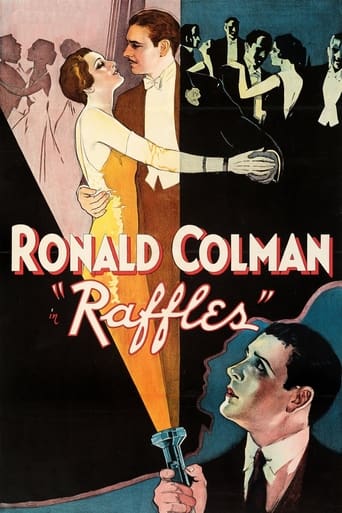


Raffles
A distinguished English gentleman has a secret life--he is the notorious jewel thief the press has dubbed "The Amateur Cracksman". When he meets a woman and falls in love he decides to "retire" from that life, but an old friend comes to him with a predicament that entails him committing one last job.
-
- Cast:
- Ronald Colman , Kay Francis , David Torrence , Frederick Kerr , Bramwell Fletcher , Wilson Benge , Alison Skipworth


Similar titles
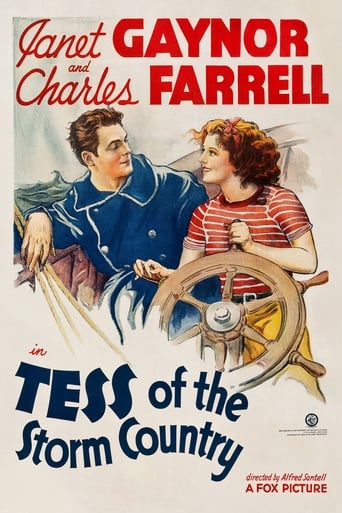

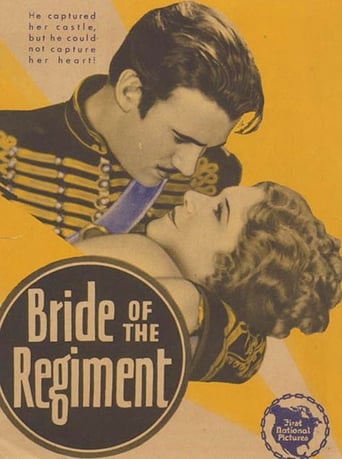
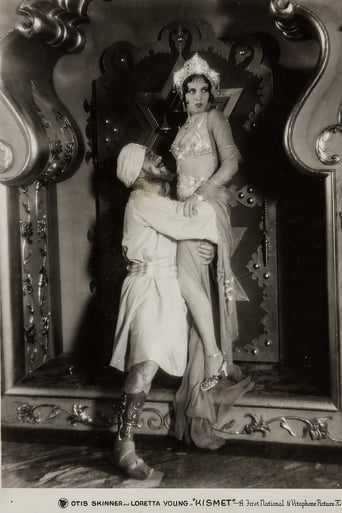
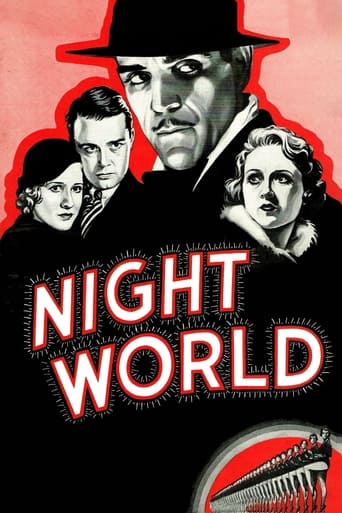
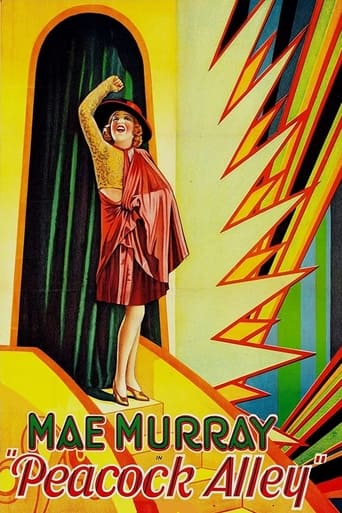
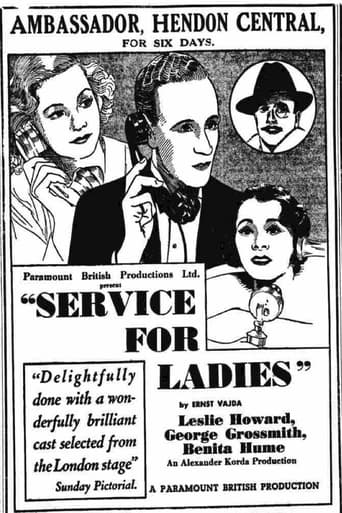
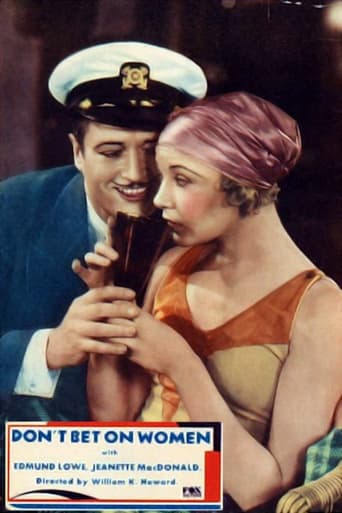
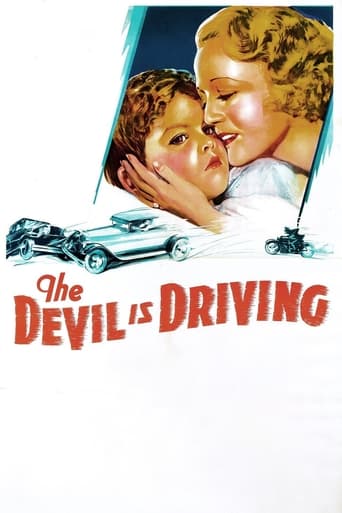
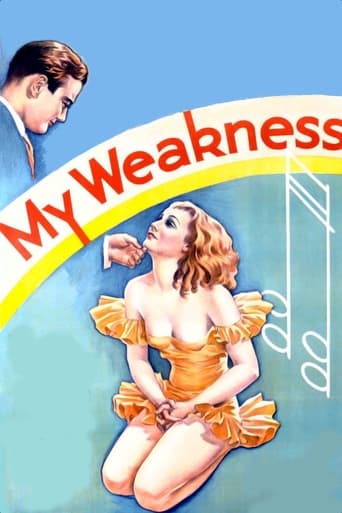
Reviews
A film of deceptively outspoken contemporary relevance, this is cinema at its most alert, alarming and alive.
The story, direction, characters, and writing/dialogue is akin to taking a tranquilizer shot to the neck, but everything else was so well done.
Each character in this movie — down to the smallest one — is an individual rather than a type, prone to spontaneous changes of mood and sometimes amusing outbursts of pettiness or ill humor.
I think this is a new genre that they're all sort of working their way through it and haven't got all the kinks worked out yet but it's a genre that works for me.
This is the first sound picture made about the gentleman thief, A.J. Raffles, created by English author E.W. Hornung. It's also among the first movies made of a caper comedy. It was only natural that this story would be remade so soon (and more versions made later), so it's also natural to compare this film with the 1939 movie. First, I think all the actors did well in both films. But some of the roles are quite different between the films. I don't know to what extent either film stayed close to the novel, or improvised. This 1930 "Raffles" suffers some in its production. It has at least two plot holes. One is left guessing why something happened a certain way. In the 1939 film, the plot spells it out. I suspect that was a difference in the screenplay and the directing or editing. So, the 1939 film is a notch better than this one, for its continuity and fluidity – the smoothness of the story. One thing about Hornung's "amateur cracksman" seems obvious. He really is an amateur. Both of these films show how easily Scotland Yard is able to get onto him. Both actors who play the inspector are quite good. In this film, David Torrence is Inspector McKenzie. In the 1939 film, Dudley Digges plays an inspector whose name is spelled MacKenzie. Torrence is very funny in his role, as the modestly egotistical Scotland Yard man. In the second film, Digges has more of a role that shows his cunning. I think Ronald Colman is the better A.J. Raffles, especially with his spritely movements. He gives one a sense that this guy could easily climb terraces, hang from ropes, or do other acrobatic feats to gain entry for nighttime robberies. David Niven doesn't give the same sense, yet his character is very likable and affable with his butler and people of a lower class. Kay Francis is OK in this film as Gwen, a doting woman in love with Raffles. But her part is not very big, and there's little more to it than that. Olivia de Havilland's Gwen in the 1939 film is much more vibrant. And, she has a meatier role that gives one much more of a sense of love between she and Raffles. The supporting casts are good, but also have quite different roles to perform. E.E. Clive in the 1939 film is far superior as Barraclough, the butler to Raffles. Wilson Benge is almost unnoticed in that role in this 1930 film. But, again, Clive is given a much meatier part, especially with one scene with some substantial dialog. Both Lord Melrose and Lady Kitty Melrose are superior in this 1930 film, as played by Frederick Kerr and Allison Skipworth, respectively. Although Dame May Witty had the Lady Melrose in the 1939 film, I suspect she and Lionel Pape (as Lord Melrose) had their parts tuned down some, for more attention to be given to Gwen, Inspector MacKenzie and Barraclough. If one could mix and match between the two films, I would like to have seen a film with the second screenplay, but some role and character changes. Ronald Colman would play Raffles opposite de Havilland as Gwen. Allison Skipworth and Frederick Kerr from this film would be the Lady and Lord Melrose, with their lines from this film. David Torrence would move Into the inspector role, taking his one scene about his expertise with him to the role in the 1939 film. And Barraclough would stay as he is in the 1939 film, with E.E. Clive in the role. Both actors who played Bunny were very good, but I think Bramwell Fletcher from this 1930 film portrayed more a sense of worry and seriousness of his financial problem E.W. Hornung's stories about AJ. Raffles, a gentleman thief, were set in late 19th century London. This first sound production of Raffles, departs considerably in that it has automobiles and airplanes. Inspector McKenzie hurries back to London by airplane. It is obviously set around 1930. Horning introduced Raffles in his first story in 1898, "The Ides of March," which was printed in the June issue of Cassell's Magazine. The titles of subsequent stories were all tagged with the label, "Adventures of the Amateur Cracksman." Seven were published in Scribner's Magazine during 1901. In 1899, a short story collection, "The Amateur Cracksman" was published. Another short story collection followed in 1906 – "Raffles, The Amateur Cracksman."In 1903, Hornung wrote a play "Raffles, The Amateur Cracksman" that was first performed Oct. 27, 1903, at the Princess Theatre in New York. In 1909 he wrote another play, "A Visit From Raffles," that was first performed at the Brixton Empress Theatre in London. In 1909, Hornung published a novel, "Mr. Justice Raffles."Here are some favorite funny lines from this film. For more humorous dialog, see the Quotes section under this IMDb Web page for the movie. Lord Melrose, "Well, like a lamb to the slaughter I go." Lady Kitty Melrose, "Did you say lamb, Harry dear?" Lord Melrose, "Well, mutton, if you like, darling." Inspector McKenzie, "Don't misunderstand me, Mr. Raffles. I have a high opinion of myself. You see, uh I'm a criminologist and a Scotsman. Heh. The Scots enjoy feelin' they're cleverer than other people, and they are cleverer. My own cleverness often amazes me." Lady Melrose, "Are we all to be murdered in our beds?" Inspector McKenzie, opening a door to another room, "Library, eh?" A.J. Raffles, "Yes for books."Inspector McKenzie, looking through a door into another room, "This is the bath, eh?" Raffles, "Yes. Uh, go straight in. I'm not bathing now."
As much as I've always revered Ronald Colman, this film just hasn't got it! By "it" I mean continuity...and common sense.Colman plays a gentleman jewel thief named Raffles, who decides to give up crime and marry Lady Gwen (Kay Francis). When Raffles' friend's debts mount up and he attempts suicide, Raffles plans one more jewel heist to provide him with finances to cure his money problem. He plans to steal the Melrose necklace, which was once the property of Empress Joséphine, but now belongs to a rather goofy old woman whose equally goofy husband walks as if he has filled his pants (Frederick Kerr). But, to screw up his heist plans, a gang of amateurish thieves are trying to steal the necklace at the same time. A Scotland Yard detective gets wind of their plot -- although the script never quite tells you how (a real oversight). But during the investigation of the theft, the detective begins to suspect Raffles. Up until this point, I found the movie to be quite poor. But then the love between Colman and Francis bring the movie to a more sophisticated level, and the tone of the movie changes, much for the better. Raffles returns his booty, then escapes and he and his lady head for Paris.Colman is as suave and sophisticated as ever, and perhaps gives the only modern performance in the film. Kay Francis, is good, although she was better slightly later in her career.This is worth watching...at least once, but it won't end up on my DVD shelf.
RAFFLES is a story filmed many times, with probably the most well-known version being the one Samuel Goldwyn made in 1939 starring David Niven and Olivia de Havilland in the main roles with Dame May Witty as Lady Melrose whose jewels are the centerpiece of the plot.That version managed to be barely above routine and this earlier take on the tale is even less impressive. Whatever merit the story has, it depends entirely on the presence of RONALD COLMAN to make the film bearable enough to watch. KAY FRANCIS is no help in a thankless co-starring role that makes little sense.The man who so successfully eludes capture by Scotland Yard is hereby confined to a routine and dull story treatment that does little to bolster the reputation of anyone connected with it. How he escapes and manages to fool the detectives hot on his trail is totally unconvincing, especially in the film's final scene where he plays a little trick on his pursuers and has time to pen a note for the Scotland Yard detective to read.Too dull, with no urgency in the story's pacing. Not recommended.
This first sound version of Raffles was one of those roles that Ronald Colman with his impeccable diction and British charm took a patent out on that only Robert Donat ever infringed on during their careers. Both of those guys did heavier acting roles than Raffles, Colman most certainly in A Tale of Two Cities, Random Harvest, and A Double Life. But Raffles was the kind of part that audiences really liked Ronald Colman in.Raffles is a celebrated cricket player and as such has entrée into all the proper British upper class homes of the between the two World Wars period. He also has an interesting sidelight as a thief, in his own way, admired even by the police for his skill at his craft as Cary Grant in To Catch A Thief. Colman has made up his mind to steal a valuable necklace from Alison Skipworth, but a rather nasty complication sets in in the person of Bramwell Fletcher a friend who seems to have written a check for far more funds than he has. Fletcher attempts suicide at Colman's apartment and Colman says he'll help.In this very short, barely over 70 minute feature film, Colman has the unusual task of, accomplishing his objective in stealing the necklace, avoid detection by the police in the person of amiable Scotland Yard Inspector David Torrence, help poor Fletcher out with his problem, and last, but certainly not least win the love of long time girl friend, Kay Francis. In a very cleverly written script Colman does accomplish nearly all, but the strength of Raffles is the telling of the tale of how he managed it all. Let's say that Colman is one clever guy who thinks very fast on his feet.Despite the well chosen supporting cast by Sam Goldwyn, Raffles is a film held together by the charm and personality of Ronald Colman. Much the same way as the 1939 version of Raffles that Goldwyn did is held together by David Niven. And if you're a Ronald Colman fan who like I could listen to him recite the Erie County Phone Directory, than Raffles is an absolute must for you.
